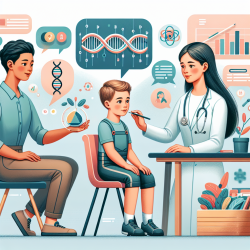Understanding Digital Health Literacy: A Key to Better Health Outcomes
In the ever-evolving landscape of digital health, understanding how students engage with online information is crucial. A recent study titled "Assessing secondary school students’ digital health literacy, information searching behaviours, and satisfaction with online COVID-19 information in Northern Ghana" provides valuable insights into this area. The study reveals that many students in Northern Ghana exhibit inadequate digital health literacy (DHL), affecting their ability to discern and utilize health information effectively.
Key Findings from the Study
The research, conducted among 1,392 secondary school students, highlights several key findings:
- Over 62% of students demonstrated inadequate levels of DHL.
- Students predominantly used search engines, websites of public bodies, and news portals for COVID-19 information.
- Many students reported dissatisfaction with the online information they found about COVID-19.
- There is a significant association between DHL levels and the use of credible information platforms.
Implications for Practitioners
As practitioners, understanding these findings can help in tailoring interventions that enhance students' DHL. Here are some actionable steps you can take:
- Incorporate Digital Literacy in Curriculum: Encourage educational institutions to integrate digital literacy training into their curriculum. This can help students develop the skills necessary to evaluate and use online health information effectively.
- Promote Access to Credible Sources: Guide students towards credible health information sources, such as government health websites and peer-reviewed journals, to ensure they receive accurate and reliable information.
- Foster Collaborative Efforts: Work with local educational and health authorities to develop programs that enhance DHL among students, particularly in underserved regions.
Encouraging Further Research
The study opens up avenues for further research into digital health literacy across different demographics and regions. Practitioners are encouraged to explore similar studies in their areas to understand the unique challenges and opportunities present.
To read the original research paper, please follow this link: Assessing secondary school students’ digital health literacy, information searching behaviours, and satisfaction with online COVID-19 information in Northern Ghana.










